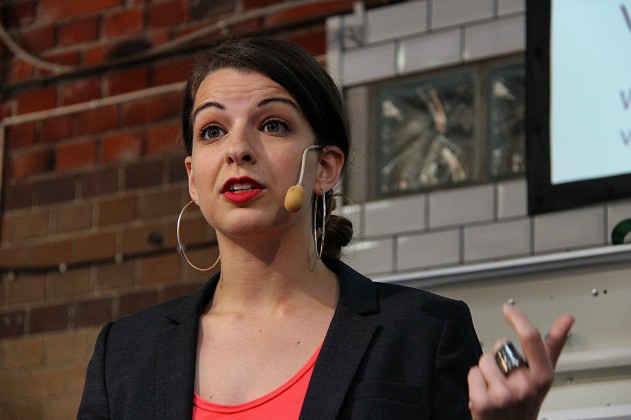She’s been threatened before, which is what happens when women say things.
There is a thing called sexism fatigue (thanks to Lindy West) that you probably understand if you follow the news. It’s that feeling that comes over you when you read about yet another thing a Republican or comedian has said about women, or another person has defended street harassment, or questioned the existence of rape culture, and the idea of explaining it to people is literally exhausting to you.
Sexism fatigue, at least for me, is the feeling of rage welling up, and then because I can’t believe I have to do this again—the explaining, which I have to manage to do without shaking the person and yelling—the rage becomes a shaky exhale, and then I have to turn off the Internet. I would recommend stepping away if you have to, but trying to find a way to come back, if you possibly can.
Yesterday evening, someone posted the news that feminist video game critic Anita Sarkeesian had cancelled her appearance at Utah State University because of death threats on my Facebook wall. In response, I commented, “Good thing misogyny isn’t a problem anymore,” and then I tried to leave the Internet.
Instead, I read the text of the mail containing the threat sent to Utah State University. It contains a reference to the Montreal Massacre, a 1989 shooting at École Polytechnique in Montreal, in which Marc Lepine murdered 15 people, claiming he was “fighting feminism.” The writer of the USU letter wrote under the moniker Marc Lepine. He also wrote, “Feminists have ruined my life,” reminiscent of murderer Elliot Rodgers’ manifesto.
It’s important to understand the references in this letter, especially in the context of what USU told Sarkeesian. In spite of what has happened in the past, and will probably happen again in the future, they would not search for concealed weapons. Someone made a threat to kill people if Sarkeesian spoke on campus, and the police would do nothing to stop it. They would not protect her, or the people she would speak to.
Sarkeesian’s decision to cancel her speech is not just about protecting herself, but everyone at USU who would have attended the speech. It won’t stop her from doing her work, however, as she affirmed in a tweet.
She’s been threatened before, which is what happens when women say things, especially in a world where men associate female power with threats to their sexuality and well-being, when they’re encouraged to do so.
Sarkeesian’s work as an interrogator and disruptor of video game culture is seen via a misogynist and macho culture as invading a male space, in which men can do whatever they want to women. The Internet conversation might shift to being about the right to bear arms, to carry, the Constitution, etc., but it didn’t begin there and we can’t let it end there.
It’s not hard to draw a line between yet another attempt to silence Sarkeesian, a mass shooting threat at a university (historically male territory), access to guns (associated with masculinity), and rape culture. It’s important to be able to make those connections, as it’s important to understand the references in the USU emailer’s letter, and to know that whether or not the writer would have followed through with the threat, the point is to silence.
Chanel Dubofsky’s work has been published in RH Reality Check, Cosmopolitan, The Frisky, The Billfold, Lilith and The Forward, among others. She is working on her MFA in Fiction at the Vermont College of Fine Arts and lives in Brooklyn, New York.
Related Links:

